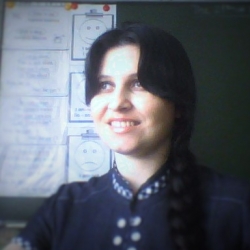
Typical English Breakfast
6 class
Организационный момент.
- Good morning, boys and girls! My name is Anzhela Nikolayevna. Today I’ll be your English teacher. Sit down, please.
Намятова Анжела Николаевна, МАОУ "Байкаловская СОШ"

4 = k
+ s

What do you like to eat and drink for breakfast?
Речевая зарядка.
-Before we’ll start I want to know…
-What do you like to eat for breakfast? (For example, I like to eat cakes for breakfast. I like to drink juice for breakfast.)
-Fine, thanks.
-I have a basket with food. Please, take something and say: What is it? (Ребёнок вытаскивает из корзинки продукт и называет его – It is an apple.)
-Do you like eggs / butter / apples / cucumbers / bread / rice / coffee / sugar? (Yes, I do. / No, I don’t.)
Повторение .
-Can we count eggs, cucumbers, apples? (Yes, we can.)
-Please, count eggs, cucumbers, apples.
-Скажите, как называются существительные, которые мы можем посчитать? (Исчисляемые) (Табличка «исчисляемые существительные» появляется на доске)
-You’re right: a sweet – 2 sweets, an egg – 4 eggs.
-Can we count bread, butter, sugar? (No, we can’t.)
-That’s right: we say some butter, some milk.
-Скажите, как называются существительные, которые мы не можем посчитать? (Неисчисляемые) (Табличка «неисчисляемые существительные» появляется на доске)
-Look at the screen and correct the mistakes.
I like to eat … for breakfast.




bacon
fish
eggs
sausages
toast
tomatoes
cake
bananas
Shopping List
There is/are … in the traditional English breakfast.
There isn’t/aren’t … in the traditional English breakfast.

Ролевая игра.
- Do you like to go shopping? Let’s go to the shop and buy some food.
- Look at the screen and listen to the conversation. What is the customer buying?
- Act out the conversation.
The conversation “In the shop”.

- It was great. Thank you, sit down, please.


The lesson is over.
Good bye!
Подведение итогов .
-What words did we learnt at this lesson? (We learnt words “many/much/a lot of”)
-When do we use these words? (We use “many” if the word is countable. We use “much” if the word is uncountable.)
- Dear children! I have a lot of apples: good apples and bad apples. Good apples like our lesson. Bad apples don’t like our lesson.
- Если вам понравился сегодняшний урок – прикрепите к тарелке хорошее яблоко, если нет – плохое.




























